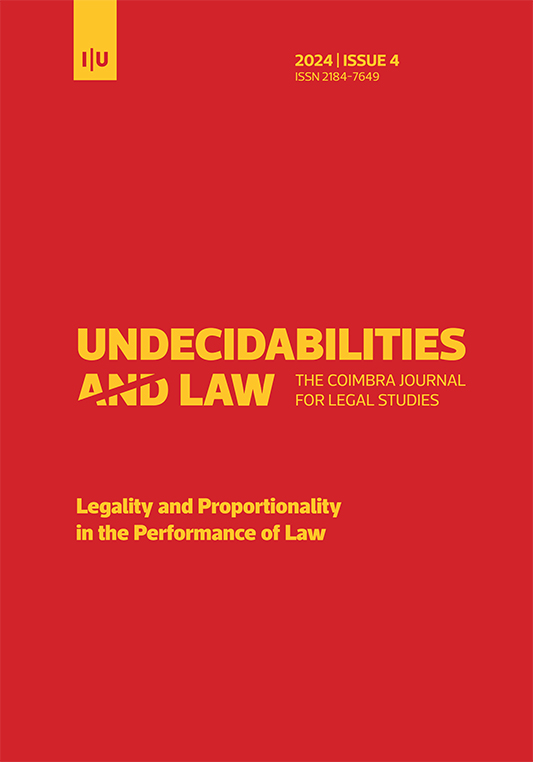Proportionality vs. legalism
DOI:
https://doi.org/10.14195/2184-9781_4_4Keywords:
Principle of proportionality, Legalism, Theory of principles, Liberalism, Individual rightsAbstract
The rule of law is fundamentally anchored in the legality of state actions, ensures that state bodies operate within the legal frames. The interplay between legality and proportionality is crucial, as the legality test assesses whether actions are lawful, while the proportionality test evaluates the balance of interests involved. Together, these principles create an actual scope of individual autonomy against the potential overreach of state power, emphasizing the importance of justice based on individual rights rather than majority interests. The principles of legalism and proportionality are coherent in the task to limit state power and protect individual rights. While legalism provides a formal structure for governance, proportionality ensures that any limitations on rights are justified and balanced against the need to protect individual autonomy. The relationship between these principles is essential for maintaining a just legal order, where the protection of individual rights is prioritized, and the potential for political influence in judicial decisions is minimized. This coherence is vital for fostering a legal culture that respects individual freedoms while ensuring that state actions remain within lawful bounds.
Downloads
Downloads
Published
How to Cite
Issue
Section
License
Copyright (c) 2025 Milena Korycka-Zirk

This work is licensed under a Creative Commons Attribution 4.0 International License.



